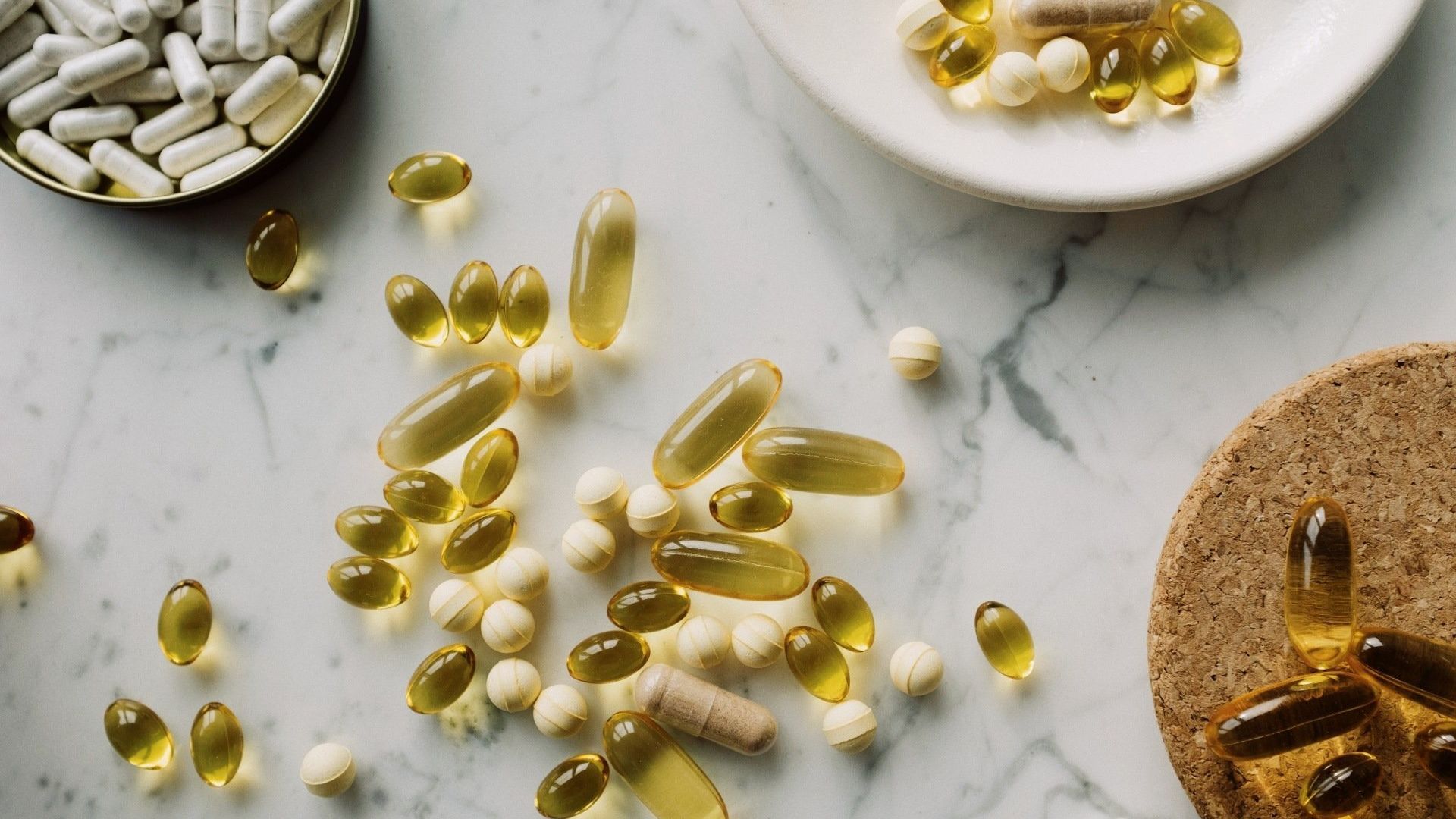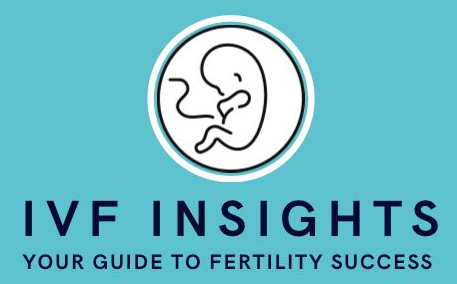
Supplements for PCOS: A Holistic Approach to Balance Your Hormones
Polycystic Ovary Syndrome, commonly known as PCOS, is a hormonal disorder that affects many women worldwide. One of the most challenging aspects of PCOS is the hormonal imbalances it brings, which can lead to various symptoms, including irregular periods, weight gain, and increased androgens. Fortunately, there is a holistic approach to managing PCOS that includes supplements to balance your hormones and promote overall well-being. In this blog article, we will delve into the world of supplements for PCOS, focusing on the importance balance your hormones and the use of vitamins for PCOS.
Understanding PCOS and Hormonal Imbalances
Before we explore the role of supplements, let's gain a better understanding of
PCOS and the hormonal imbalances it often entails. PCOS is characterized by disruptions in the endocrine system, leading to imbalances in various hormones. These imbalances can cause insulin resistance, increased androgens (male hormones), and a cascade of related symptoms.
You Might Also Like: PCOS Self Care: 25 Tips For Living Your Best Life
The Role of Vitamins for PCOS Management
Supplements are one of the essential elements of a holistic approach to PCOS management. While they are not a cure, they can complement dietary and lifestyle changes to support hormonal balance. Vitamins for PCOS, minerals, and other nutrients can address specific PCOS-related concerns and promote overall well-being.
Key Supplements for Balancing Hormones
Let's dive into the key supplements for PCOS that can play a pivotal role in balancing hormones for woman with PCOS:
1. Inositol: The Insulin Sensitizer
Inositol, specifically Myo-Inositol and D-Chiro-Inositol, helps improve insulin sensitivity, reducing the risk of insulin resistance often seen in PCOS. This, in turn, supports to balance your hormones and regular menstrual cycles.
2. Omega-3 Fatty Acids: The Anti-Inflammatory Allies
Omega-3 fatty acids found in fish oil have anti-inflammatory properties, which can help manage inflammation often associated with PCOS. They support heart health and have been shown to reduce androgen levels.
3. Vitamin D: The Hormonal Regulator
Adequate levels of vitamin D are crucial vitamines for PCOS because of hormone regulation. Many individuals with PCOS are vitamin D deficient. Supplementation can help address this deficiency and support balancing hormones.
4. Chromium Picolinate : The Blood Sugar Stabilizer
Chromium is essential for blood sugar control. It can help regulate insulin levels, reducing the risk of insulin resistance, and improving overall metabolic health.
5. N-Acetyl Cysteine (NAC): The Ovulation Enhancer
NAC is known for its role in promoting ovulation in women with PCOS. It may also help reduce insulin resistance and lower androgen levels.
6. Magnesium (Citrate): The Hormone Supporter
Magnesium is involved in numerous hormonal processes. It can improve insulin sensitivity and reduce inflammation, making it a valuable addition to a PCOS-focused supplement regimen.
7. B-Vitamins for PCOS: The Metabolic Boosters
B-vitamins for PCOS, particularly B6 and B12, support various metabolic processes. They can help reduce androgen levels and improve overall energy levels.
8. Zinc: The Hormone Balancer
Zinc is essential to balance your hormones and ovulatory function. It supports the regulation of androgens and helps maintain healthy menstrual cycles.
9. Folic Acid: The Reproductive Health Promoter
Folic acid, or folate, is crucial for reproductive health and the prevention of birth defects. It can also assist in regulating insulin levels and supporting hormonal balance.
10. Cinnamon: The Blood Sugar Stabilizer
Cinnamon is well-known for its blood sugar-stabilizing properties. It can help manage insulin resistance and promote hormonal balance.
11. Coenzyme Q10 (CoQ10): The Cellular Energy Enhancer
CoQ10 plays a role in energy production at the cellular level. It may help improve ovarian function and overall fertility in women with PCOS.
12. Berberine: The Insulin Regulator
Berberine is a compound derived from various plants and has been found to improve insulin sensitivity and lower androgen levels.
13. Probiotics: The Gut Health Supporters
Probiotics promote a healthy gut, which can positively impact insulin sensitivity, inflammation, and hormonal balance.
14. Evening Primrose Oil: The Hormone Regulator
Evening primrose oil is rich in gamma-linolenic acid, which can help regulate hormones and reduce inflammation.
15. Vitex (Chasteberry): The Hormonal Harmonizer
Vitex supplements for PCOS is known for its ability to balance your hormones, particularly by influencing the pituitary gland to regulate menstrual cycles.

Benefits of a Holistic Approach to Balance Your Hormones
A holistic approach to PCOS management, including the use of supplements, offers several significant advantages. By addressing the condition from multiple angles, individuals can experience the following benefits:
1. Comprehensive Hormone Balance:
Holistic approaches encompass all aspects of PCOS-related hormonal imbalances, addressing insulin resistance, androgen levels, and more.
2. Enhanced Symptom Management:
A holistic approach can improve various PCOS symptoms, such as irregular periods, acne, and hirsutism.
3. Better Overall Well-being:
The incorporation of supplements for PCOS and dietary changes can boost overall health and vitality.
4. Personalization:
Holistic approaches can be tailored to an individual's unique needs, ensuring that the chosen supplements for PCOS are appropriate and effective.
5. Potential for Improved Fertility:
For those aiming to conceive, a holistic approach may enhance fertility by regulating ovulatory function and supporting reproductive health.

Considerations and Precautions
While supplements can be valuable tools in managing PCOS, it's crucial to consider the following factors:
1. Consult Your Healthcare Provider:
Always consult a healthcare provider before starting any new supplements for PCOS. They can provide personalized recommendations and ensure that supplements are safe and suitable for your specific needs.
2. Potential Interactions:
Some supplements for PCOS may interact with medications or have contraindications. Your healthcare provider can guide you on potential interactions and help you make informed decisions.
3. Dosages and Timing:
When taking supplements for PCOS, follow recommended dosages and timing instructions. Overuse or misuse can have adverse effects.
4. Monitoring and Adjustments:
Work closely with your healthcare provider to monitor your progress and make necessary adjustments to your supplement regimen as needed.

Tips for Incorporating Supplements for PCOS
Integrating supplements for PCOS into your daily routine can be more manageable with these tips:
1. Set Reminders:
Use alarms or smartphone apps to ensure you take your supplements regularly and at the recommended times.
2. Create a Routine:
Incorporate your supplements into a daily routine, such as with meals or before bedtime.
3. Organize with a Pill Organizer:
A pill organizer can help you keep track of your daily supplement regimen.
4. Combine with Diet and Lifestyle Changes:
Supplements work best when combined with a healthy diet and an active lifestyle tailored to PCOS management.

Lifestyle and Dietary Choices
Supplements for PCOS are most effective when they complement a PCOS-friendly diet and exercise regimen. Consider these lifestyle and dietary changes and self care activities to maximize the benefits of your supplement regimen:
1. Balanced Diet:
Focus on a balanced diet rich in whole foods, fruits, vegetables, lean proteins, and whole grains. Limit processed foods and added sugars.
2. Regular Exercise:
Engage in regular physical activity to improve insulin sensitivity and support overall well-being. A combination of cardio and strength training can be particularly effective.
3. Stress Management:
Stress can exacerbate PCOS symptoms. Explore stress reduction techniques, such as mindfulness, meditation, and deep breathing exercises.
4. Hydration:
Ensure you stay well-hydrated by drinking an adequate amount of water daily. Proper hydration supports hormone balance and overall health.

Balancing hormones in the context of PCOS is a multifaceted journey. A holistic approach, including the use of supplements, offers individuals with PCOS a well-rounded strategy to manage symptoms and improve overall health. By addressing insulin resistance, reducing androgen levels, and supporting menstrual regularity, supplements for PCOS become valuable tools in the PCOS toolkit. It's essential to consult with a healthcare provider for personalized recommendations, as everyone's needs and responses to supplements can differ.
Incorporating supplements for PCOS into your daily routine can contribute to better balance your hormones and overall well-being. Whether you're seeking relief from specific symptoms or aiming to enhance your fertility, a holistic approach can empower you to take control of your health and
live your best life with PCOS. As you embark on your journey to balance your hormones, remember that you're not alone, and there is a wealth of support and guidance available to help you achieve success.



